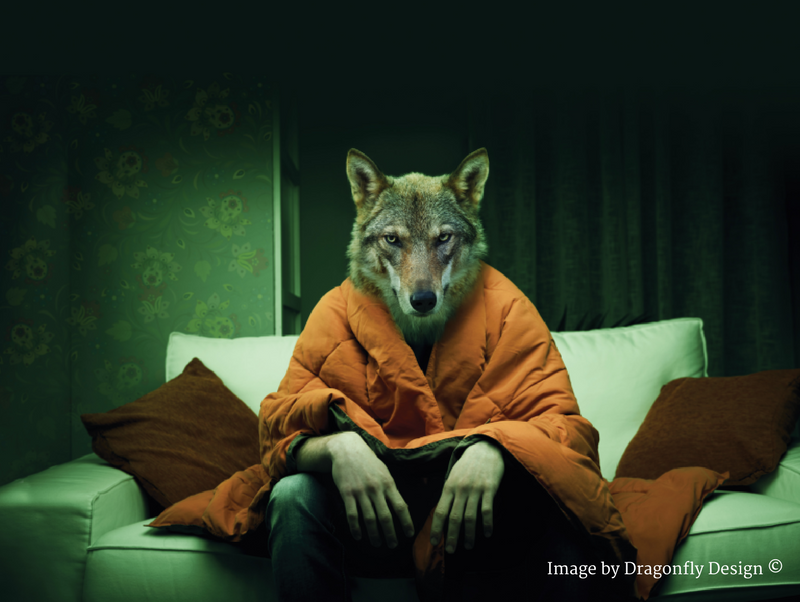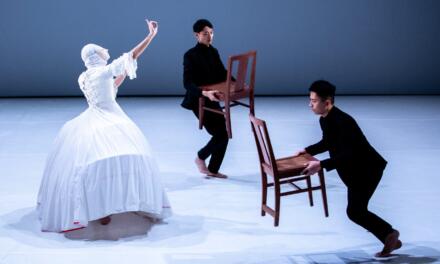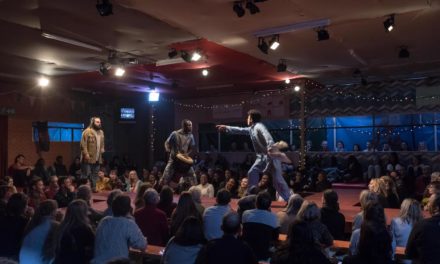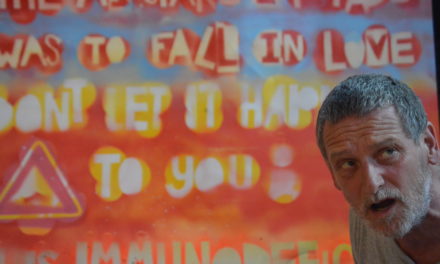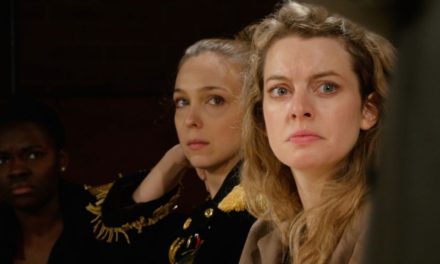I have just finished translating Mikhail Durnenkov’s The War Hasn’t Yet Started for the third time in as many years. I’m in an unusual situation–one translator creating three different versions of the same play. As far as I know, that doesn’t normally happen. I have tried to take advantage of each opportunity to re-translate the play, adapting it significantly to the specific target audience.
In 2015, I translated The War for the first time, for my Ph.D. at Queen Mary University of London. Subsequently, this translation was presented as a rehearsed reading at the Frontline Club in London. I knew that the Frontline Club attracts a specialist audience, already familiar with Russian culture. I left the play in quite a “raw” state. For example, I could indulge my audience with references to “dachas” rather than “country houses.” I left the language sounding rather “strange” or “foreign.” To English ears, it was somewhat stilted–although it worked for people who already know about Russian culture.
In 2016, Theatre Royal Plymouth produced The War in the Drum Theatre in Plymouth (their studio space with approx. 200 seats). I developed my translation further with the director Michael Fentiman, who directed the production in Plymouth. Fentiman had a good eye for clarifying cultural references which would not be clear to audiences in the UK. So, “dacha” would become “country house.” But there were more difficult decisions to be taken as well about “hidden” references.
For example, one scene in The War refers to “another country,” without specifying which one. Russian audiences would know from the scene that it refers to Ukraine. Russia has been waging a covert–and later more overt–war against Ukraine since 2014. It felt wrong to name Ukraine in the scene, since the drama works on a metaphorical level, as well as commenting obliquely on real-world geopolitics. Fentiman encouraged me to develop the references in a certain way. For example, the Russian TV journalist who willingly broadcasts a “fake news” story about Ukraine refers to “them” and “they.”
In my second translation, working with Fentiman, I ended up going for “those other people”–which is tacitly xenophobic or at least judgemental. This less literal approach to the original text helped to create the sense of two hostile, warring neighboring countries without needing to specify Russia and Ukraine. It even added to the drama of the scene, I think, by highlighting the mentality of “us versus them,” which motivated the scene and the play as a whole. (The playwright is looking critically at the “us versus them” mentality, rather than endorsing it!)
In January 2018, a new production of The War opened at London’s Southwark Playhouse. It is produced by the same company, Theatre Royal Plymouth, but there is a new director and therefore the translation will also be different. This has been my favorite experience of translation to date. Working with the director Gordon Anderson, I altered my translation even more than in 2016.
I moved yet further away from translation as a technical process which is “faithful” to the original. Anderson’s TV experience gave him a keen eye for opportunities to edit and shape the dialogue–a step closer to adaptation. In the past, I might have objected. Scholars often feel that retaining the “foreignness” of the play’s language is the highest priority of translation. Yet, my approach to translation has changed over many years–and Anderson pushed me to develop my approach still further. At times, I added to the dialogue and at times, I cut dialogue from the scenes, where I felt that the spirit of the original was getting “lost in translation.”
This way of working sees the translator as essentially creating a “new play.” Obviously, this “new play” has to embody the spirit of the original, but it needn’t be overly faithful to the original. Translating The War for the third time, I wanted the London audience to experience the drama (the story and structure) of this play, without getting bogged down in the “strangeness” of the language itself. This method captures a more nuanced view of Russian culture. It aims to create a natural-sounding text in English which retains difference, or even “strangeness,” in the plotting or characters.
That makes sense when you think about it. After all, Russian culture is not “isolated” in its own bubble. I regularly speak to Russian playwrights who tell me that they are equally inspired by Russian culture as by British playwriting. Any translation must find a nuanced balance between being “strange” (or “foreign”) and “natural.” The language should not be an obstacle for the audience. Otherwise, Russian plays are being translated solely to be watched by audiences who are already familiar with Russian culture.
I have come to believe that translation is more about capturing “unfamiliar ways of thinking.” In The War, there are a series of competing realities. Different characters see the world in contradictory ways. The play suggests that “your truth” and “my truth” cannot both be true. In other words, The War offers an experience of living in a post-truth era–just as relevant to British audiences as Russian ones. I have come to feel that translation is like telling somebody about a dream you had the previous night. You have to explain what you saw as clearly as possible, in a language which they will understand. The meaning of the dream is elusive…What matters is how it felt when you were asleep, and finding a natural-sounding way to explain the odd experiences in the dream to your listener. I hope that my least “faithful” translation of The War captures the dream-like but arresting quality of the original play in a clear and lucid language.
This article originally appeared in Creative Multilingualism on March 1, 2018, and has been reposted with permission.
Noah Birksted-Breen is a Post-doctoral Researcher on 4th research strand: Languages in the Creative Economy.
This post was written by the author in their personal capacity.The opinions expressed in this article are the author’s own and do not reflect the view of The Theatre Times, their staff or collaborators.
This post was written by Noah Birksted-Breen.
The views expressed here belong to the author and do not necessarily reflect our views and opinions.

